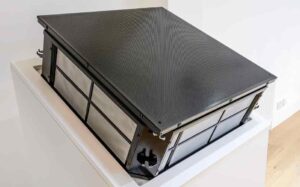Getting to grips with illegal refrigerants
27th October 2015 BELARUS: Although ODS regulations are being strengthening across the region, illegal refrigerant imports are still a problem for CIS countries and other former Soviet Republics.
BELARUS: Although ODS regulations are being strengthening across the region, illegal refrigerant imports are still a problem for CIS countries and other former Soviet Republics.
Turkmenistan has reported illegal imports of R11, R22 and R404A, originating from China, Iran and Turkey, while Uzbekistan is said to have seized 1020.4kg of illegally imported R12 which is currently stored at customs and awaiting destruction. Ukraine has also reported evidence of illegal imports of R22 air conditioning systems which were mis-labelled as containing non-ODS such as R410A.
These and other lessons learned from the implementation of each country’s HCFC phase-out strategies were discussed at the recent meeting in Belarus. The meeting was organised as part of the work programme of UNEP’s Regional Ozone Network for Europe & Central Asia.
As a member of the recently created Eurasian Economic Union (EUU), Belarus said it was confident of meeting this year’s 90% HCFC reduction pledge. This, it said, was due to a combination of measures including bans in the import of ODS equipment/products, import fees for ODS of US$4.5/kg, record-keeping for equipment with more than 3kg of refrigerant charge and higher penalties including fines up to $5,000 and prison sentences of up to 12 years. Russia is also said to be looking to change the criminal code in the case of ODS smuggling, resulting in fines and prison sentences.
Training of customs and other enforcement officers is a vital part of efforts to stem the tide of illegal refrigerant. Kyrgyzstan is providing Montreal-Protocol-related training to customs officers and environmental inspectors on an ongoing basis. Also, since there are no border controls between the member countries of the EEU, the training of finance police officers, who are responsible for monitoring trade, will become a priority in future.
Non refillable disposable cylinders have been banned in a number of countries due to the “heel” of refrigerant that is inevitably left behind when disposed of. In those countries where they are still legal, diposables have become the container of choice for illegal importers and counterfeiters.
Belarus revealed that disposable refrigerant cylinders would be banned from January 1 under Eurasian Economic Union agreements. Armenia and Kyrgyzstan joined the EEU in 2015 and they are currently harmonising their legislation for ozone-depleting substances with that of the EEU. This includes trade restrictions and import bans for HCFC equipment and products. In addition, Kyrgyzstan banned the import of disposable cylinders. Both countries aim to phase-out their HCFC consumption by 2020 – 10 years earlier than required by the Montreal Protocol in developing countries.







